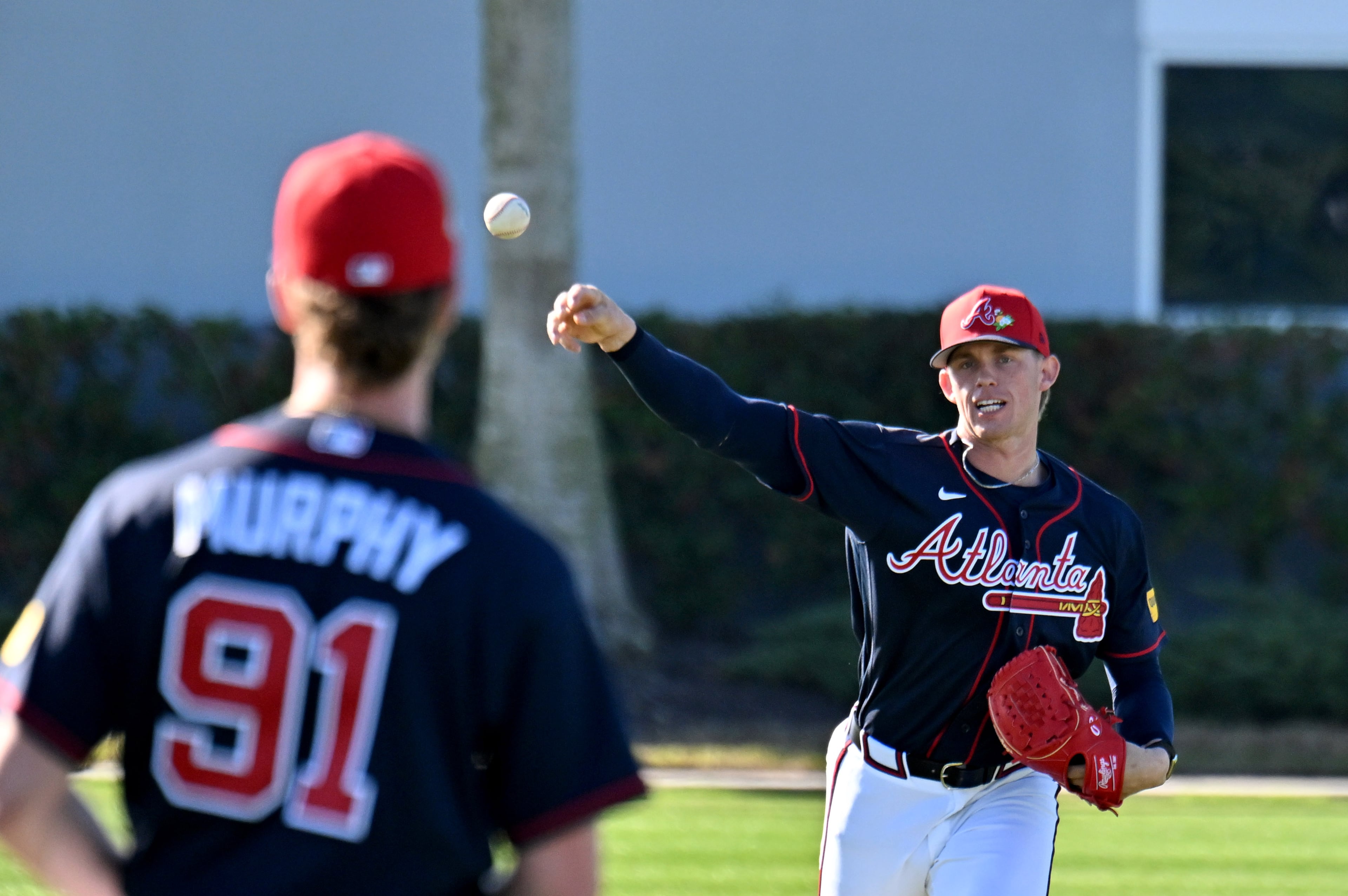Trading Heyward brings a glimpse of cold Braves’ reality
It’s a trade that’s easy to understand but impossible to like, a trade fueled not by dreams of glory but by a glimpse of cold reality. With or without Jason Heyward, the 2015 Braves weren’t going to win the National League East. With what he brought in trade, they might have a chance when they move to Cobb County in 2017, by which time the Braves figured Heyward would have been long gone to free agency.
Speaking on a conference call Monday, president of baseball operations John Hart sought to make the case that “long-term and short-term, the Braves are better.” The long-term part made sense: They’d gotten a promising-but-proven young arm in Shelby Miller for what would have been a lame-duck outfielder. The short-term part was a tougher sell.
How is a team better with Evan Gattis, who’s really a designated hitter, playing left field and Justin Upton, who’s not much of a left fielder, playing right? How is a team that finished next-to-last among 30 big-league clubs in runs apt to score more without its most versatile component?
The answer: It’s not. Last week Hart spoke of being unsure as to whether the team he inherited was in reload or rebuild mode. We now know the Braves have chosen the latter course.
Monday’s move was the first major act of an organization trying to sweep up after Frank Wren. Noting the holes left by free agents Ervin Santana and Aaron Harang, Hart said: “We lost over 400 innings. We didn’t have anybody coming up in our system ready to provide those innings.”
Then, speaking of starting pitching: “(It’s) an area where we are woefully, woefully thin in our minor-league system.”
Then, speaking of free agency: “We’re not looking to give up draft picks. We’re not willing to give out (big) contracts. We’re looking for something that is going to sustain.”
It wasn’t just the windfalls lavished on Dan Uggla and B.J. Upton that led the Braves to terminate Wren with a week left in the Braves’ first losing season since 2008. His failure was more systemic. Without a guarantee that the surgically repaired Kris Medlen and Brandon Beachy can take regular turns, the Braves had no young arms at the ready. Last summer the in-house tweak for the failing offense was to summon Tommy La Stella from the minors, the same Tommy Stella who was shipped to the Cubs on Sunday.
That La Stella, a singles-only hitter who can’t run, was the best available upgrade should have told us that the farm system — “one of the five worst in baseball” is how someone described it to me — had gone barren. Tyrell Jenkins, the right-handed pitcher included in Heyward-for-Miller, just became one of the Braves’ five best prospects. That tells us something, too.
Trading the massively gifted Heyward for Miller, whom Hart characterized as “a No. 3 or 4 starter” on this staff, showed how few options the Braves had. (Who wants B.J. Upton at even two cents on the dollar?) “Jason’s a tremendous player,” Hart said. “My sense was that Jason was going to be out on the free-agent market after next year. He was a very short-term fit for us.”
Heyward is also a 25-year-old who’s the best right fielder and one of the best baserunners in the game, who’s hugely respected in the clubhouse and a hometown guy to boot. The belief among some baseball men is that Heyward, owing to his looping swing, will never be a great hitter. Still, it should surprise no one if he closes that hole and flourishes in St. Louis, which is the best place for a baseball player to play.
Should that happen, Hart’s first major move will be recalled as a flop on the order of Barker-for-Butler and Teixeira-for-half-the-farm-system. Hart went into great detail regarding his thinking, but after all his explaining we’re left with this: Can you really feel good about trading Jason Heyward?
“I can’t speak for what people think,” Hart said. “Some people will applaud the deal; some people will be heartbroken … I just don’t know that Jason was going to stay here. We would not have been where we wanted to be had we played this out and not solved our starting pitching dynamic. Our farm system is not that strong, and Jason Heyward was going to be a one-year guy.”
The Braves have gotten younger and more than a bit cheaper. They’ve also gotten, at least for 2015, much worse. Sometimes a club must make that concession. Hart made it in his first full month on the job, calling such a trade “a fine balance. It’s painful. It’s not something you like to do.”
Then this: “We didn’t see a better option that was out there.”
There’s no question that Hart knows what he’s doing. At the same time, Braves fans have agonized for nearly a decade over the sight of Adam Wainwright, the farmhand sent to the Cardinals for a year’s rental of J.D. Drew, dominating hitters. Imagine the angst if Atlanta’s own Jason Heyward lands in St. Louis and becomes the next Stan Musial — and he might.



